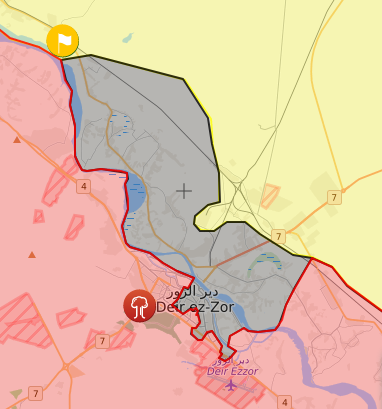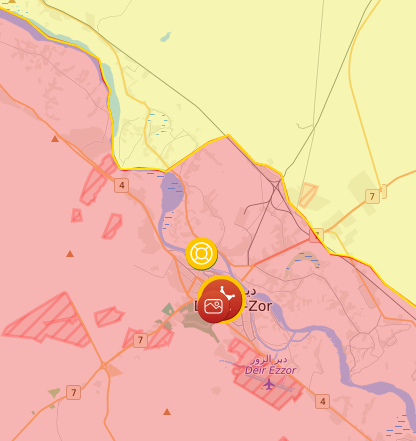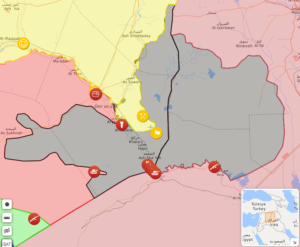The Syrian army just ousted the Islamic State from their last urban stronghold in Syria.
Syrian government forces have liberated the last remaining Isis stronghold in the country as the group’s self-proclaimed caliphate continues to crumble.
The Syrian military said it had driven extremist fighters from Deir Ezzor and regained full control of the eastern city on the west bank of the Euphrates following weeks of fighting, state media reported.
Isis had held most of the city since 2014, except for one large pocket where Syrian army troops and 93,000 civilians were trapped for three years.
Syrian forces and pro-government allies first broke the militant group’s siege on the city in a Russian-backed offensive in September and have been advancing against Isis positions ever since.
The recapture of the city, the largest in eastern Syria, leaves Isis militants isolated and encircled in the region’s countryside.
In a statement issued on Friday through state TV, army spokesman General Ali Mayhoub said the military had “completely” liberated the city and declared it had entered the “last phase” of its fight to annihilate Isis.
Isis is estimated to have lost 90 per cent of its territory since 2014, including key urban strongholds Mosul in Iraq and Raqqa in northern Syria.
Deir Ezzor was strategically significant to the extremist group due to its location near the Iraqi border and its importance as the capital of the oil-rich province which shares its name.
The city’s liberation all but reduces Isis’s self-proclaimed caliphate to a pair of border towns on the Iraq-Syria frontier.
Iraqi forces and allied Shia militia are chasing remnants of the terror group inside the town of al-Qaim, on the Iraqi side of the border.
Deir ez-Zor, rumored to be the Islamic State’s backup capital after the encirclement of Raqqa, was fully invested by the Syrian Army and Syrian Democratic Forces one month ago.

And here’s the same territory today:

(Pictures, as usual, from http://isis.liveuamap.com/.)
Elsewhere in the war against the Islamic State, Iraqi forces have taken Qaim on the border between Iraq and Syria. That leaves Rawa City, a town of some 20,000 east of Quim in western Anbar province, as the last populated Islamic State stronghold in Iraq. That’s expected to fall soon as well.
In Abu Kammal, one of the last towns in Syria held by the Islamic State, security checkpoints have been abandoned as both civilians and Islamic State fighters are fleeing the area to due to Russian Air Force bombardment.
What remains of Islamic State territory after that is largely uninhabited.

After the falls of Raqqa and Mosul, there may be no true “Last Stand” for the Islamic State, no Fuhrer bunker end for al-Baghdadi, just the rest of the supposed caliphate’s territory melting away as onetime fighters flee into the night and try to melt back into the civilian population. Meanwhile, expect the Islamic State to turn into just another stateless jihadist terror network like al Qaeda, blowing people up across the world but holding no territory, and thus no moral authority upon which to demand the allegiance of Muslims worldwide:
Al‑Qaeda is ineradicable because it can survive, cockroach-like, by going underground. The Islamic State cannot. If it loses its grip on its territory in Syria and Iraq, it will cease to be a caliphate. Caliphates cannot exist as underground movements, because territorial authority is a requirement: take away its command of territory, and all those oaths of allegiance are no longer binding.
It’s possible that the failure of the Islamic State will take wind out of the sails of Islamic fundamentalism for a generation. This wouldn’t mean an end to Islamic terrorism and attempts to Islamicize the west in general and Europe in particular, only a lessening of it.
But the fall of the Islamic State’s last remaining territory is still a cause for celebration among the millions once enslaved by its brutal medieval death cult.


